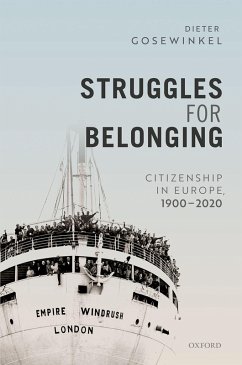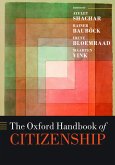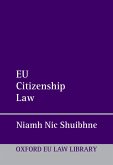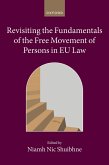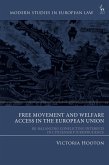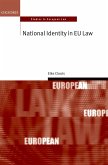Citizenship was the most important mark of political belonging in Europe in the twentieth century, while estate, religion, party, class, and nation lost political significance in the century of extremes. This is shown by examining the legal institution of citizenship, with its deciding influence on the limits of a political community, on inclusion and exclusion. Citizenship determined a person's protection, equality, and freedom and thus his or her chances in life and very survival. This book recounts the history of citizenship in Europe as the history of European statehood in the twentieth and early twenty-first centuries. It does so from three vantage points: as the development of a legal institution crucial to European constitutionalism; as a measure of an individual's opportunities for self-fulfilment ranging from freedom to totalitarian subjugation; and as a succession of alternating, often sharply divergent political regimes, considered from the perspective of their inclusivity and exclusivity, and its justification. The European history of citizenship is discussed in this book on the basis of six selected countries: Great Britain, France, Germany, Czechoslovakia, Poland, and Russia. For the first time, a joint history of citizenship in Western and Eastern Europe is told here, from the heyday of the nation state to our present day, which is marked by the crises of the European Union. It is the history of a central legal institution that significantly represents and at the same time determines struggles over migration, integration, and belonging. One of the central concerns of this book is what lessons can be learned when it comes to the future chances of European citizenship.
Dieser Download kann aus rechtlichen Gründen nur mit Rechnungsadresse in A, B, BG, CY, CZ, D, DK, EW, E, FIN, F, GR, HR, H, IRL, I, LT, L, LR, M, NL, PL, P, R, S, SLO, SK ausgeliefert werden.

